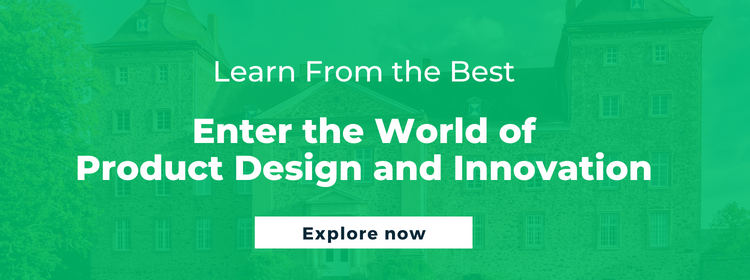What is Product Management and Why it is a Great Career Choice

- Why is Product Management Important?
- What are the Most Important Product Management Skills?
- The Role of Product Management
- The Product Management Process
- Product Management vs. Project Management
- How to Start a Career in Product Management
- Product Management Jobs
- What is the Salary of a Product Manager?
- How Can Emeritus Boost Your Product Management Career?
Great products are a result of creativity and imagination distilled into viable ideas, followed by relentless execution spanning across business functions. The process often seems abstract to most people, but product management is all about efficiency and clear targets. To make things clear, let’s discuss what is product management and how it works.
Product management refers to the process of creating and delivering products that are valuable, usable, and viable. That is to say, they are valuable enough for the customer to choose over other products, easy for them to use, and viable for the company to manufacture.
Why is Product Management Important?
The process of creating great products can get chaotic and resource-consuming. If things go awry, it quickly spirals into rising costs, delayed timelines, and ultimately dissatisfied customers. Product management brings order to this chaos. Product managers coordinate with stakeholders to ensure that the parameters of value, feasibility, and usability are met. Simply put, product management helps keep businesses and functions on track with their existing deliverables while pushing them to constantly evolve and innovate in order to retain their competitive edge.
What are the Most Important Product Management Skills?
Product managers must possess a mix of technical, managerial, and interpersonal skills. The soft skills include:
- Communication of plans
- Prioritization of ideas
- Creativity
- Strategic thinking
- Data analysis
The must-have technical skills are:
- In-depth knowledge of the product
- Product roadmap development
- Efficient product lifecycle management
- Process standardization and product release management
- Value proposition creation
The Role of Product Management
Product management is often portrayed as exclusive to software alone. However, the role of product management spans responsibilities that hold universally true for all goods and services. These are:
Product and Market Research
This is the initial and most important stage of product management. It helps identify the company’s target market, user personalities, and existing competition in the space.
Strategy Development
The inputs from product and market research are converted into a game plan comprising goals and objectives. The product’s design is conceived at this stage, along with a rough timeline to take it to market.
Communication
The strategy is further broken down into actionable insights and a product roadmap is prepared to present to relevant stakeholders such as development teams, investors, and board members. Communication of plans is key as product details tend to change through the course of development.
Coordinating Development
Once product development is underway, the product management team coordinates with the relevant departments and aligns their functions to the established strategy. While the vision remains constant, plans can change, making coordination essential for a seamless workflow between departments.
Feedback and Analysis
Establishing a feedback loop and collecting data is an important part of product management. This data is a reflection of how the product is received in the market and provides insight to help create desirable changes in future iterations.
The Product Management Process
Market Research
Market research helps identify customer pain points and needs that can be addressed by the product. The decision to conduct market research is discretionary; some product managers choose to forego it when launching an innovative product.
Idea Management
There can be several solutions for the problem identified by market research. Idea management narrows these down according to the product’s vision and other constraints such as regulations governing their design and cost of raw materials, among others.
Conceiving the Product
Products are conceived based on the inputs of market research and shortlisted ideas. The resulting product is a crude Minimum Viable Product (MVP) that fulfills all requirements without other ‘good-to-have’ features.
Product Development
It refines conceptualized products, adding desirable features to make them more attractive to the buyer while minimizing costs.
Product Release
This stage concerns itself with the production, marketing, and distribution of the product. The costs pertaining to bringing this product to market are determined here, ultimately reflecting its profitability to the organization.
Customer Feedback
Innovation and constant improvement are vital when catering to the customer’s ever-evolving needs. Having a feedback loop enables quick inputs from various users operating in different ecosystems.
Product Management vs. Project Management
People can use product management and project management interchangeably. However, they are two distinct functions and differ on the following counts:
Timeline
Products and consequently, product management, are continuous and ever-evolving activities. Projects, on the other hand, are temporary and time-bound.
Objective
Products are designed and manufactured for sale to meet customer needs. In contrast, projects are a series of actionable tasks to achieve a singular objective that may not be directly related to fulfilling customer needs.
Uniqueness
A product manager tends to explore new ground in the process of product development. Whereas, project managers often have precedent for most actionable steps involved in project execution.
Functions
Product managers have a more exploratory and strategic role. They define the product’s vision, lay out roadmaps, and communicate with relevant stakeholders. In contrast, project managers concern themselves more with the leg work around project completion, including allocation of resources and responsibilities as well as defining and overseeing project timelines.
While product management and project management have their differences, it is possible for their functions to overlap. This can happen in smaller organizations, or in scenarios where managers have technical and tactical prowess along with strategic thinking.
Having an overlap in these roles can also be beneficial: Project managers, when participating in product development, can lend tactical advantages such as expediting tasks, cost control, and so on.
ALSO READ: What is Project Management and How to Become a Successful PM
How to Start a Career in Product Management
Product management consists of both transferable skills (soft skills) and non-transferable skills (hard skills) that are specific to the product type. In order to make a career in product management, it is essential to have a degree in business administration and requisite product knowledge. However, specialized training and learning on-the-job in an industry of your choice are also great ways to start a career in product management.
Product Management Jobs
According to Glassdoor, product management ranks among the top 10 jobs in the U.S. Product management roles are finding increasing representation in the C-suite and higher management with openings for Chief Product Officer (CPO), and director of functions such as product management, user experience, and analytics.
Some of the prestigious firms hiring for product management jobs include Boeing, Walmart, Visa, and Cisco.
What is the Salary of a Product Manager?
According to Indeed, product managers in the U.S. can earn between $69,000 and $150,000 annually, making it a lucrative career option.
How Can Emeritus Boost Your Product Management Career?
Now that you have all the answers to your queries pertaining to what is product management, it is time to take action. Explore Emeritus’ online courses from some of the best universities across the globe, to boost your career in product management today.
Written by Prashant Lunawat
Write to us at content@emeritus.org






